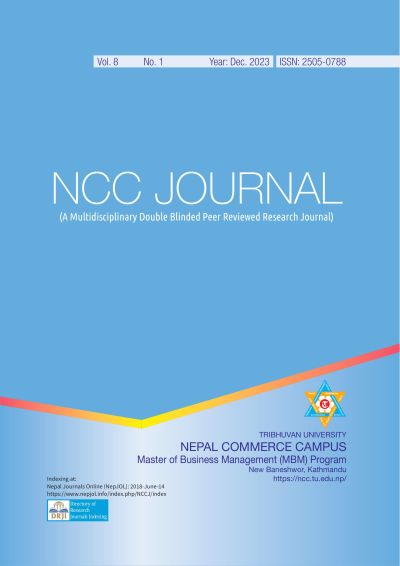Strategic Human Resource Management Practices in Banks and Insurance Companies
DOI:
https://doi.org/10.3126/nccj.v8i1.63862Keywords:
Human resource management, strategic HRM, managerial staff, commercial banks, insurance companiesAbstract
This study aims to examine the essential dimensions of strategic human resource management (SHRM) practices in Nepalese banks and insurance companies. It was carried out among managerial-level staff of eight banks and eight insurance companies in Nepal. A total of 240 questionnaires—15 for each of the 16 organizations—were distributed. 163 questionnaires in all (67.92%) were returned and used in the study. This study used a checklist measure of SHRM practices. The degree of application is assessed by assigning 1–6 points to each practice item. Six dimensions—career development and promotion, employee participation, quality control (QC) program, management by objectives (MBO), team management, and corporate culture—are used to classify SHRM practices. The results indicate that all SHRM practices are typically well-perceived. Commercial banks and insurance businesses differ significantly in all aspects of SHRM practices. Employees in banks perceive more positive SHRM practices than those of insurance companies. Due to their alluring employment opportunities and strong SHRM practices, banks may be able to lure individuals from the insurance companies. Compared to commercial banks, which might acquire qualified workers from the labor market, insurance companies are more likely to have higher staff turnover. As such, they must take these realities into account. Because of this, both the banks and insurance companies must ensure that their SHRM policies and HR investments draw in and keep competent applicants from the job market.
Downloads
Downloads
Published
How to Cite
Issue
Section
License
© Nepal Commerce Campus, Tribhuvan University
CC BY-NC: This license enables reusers to distribute, remix, adapt, and build upon the material in any medium or format for noncommercial purposes only, and only so long as attribution is given to the creator.




